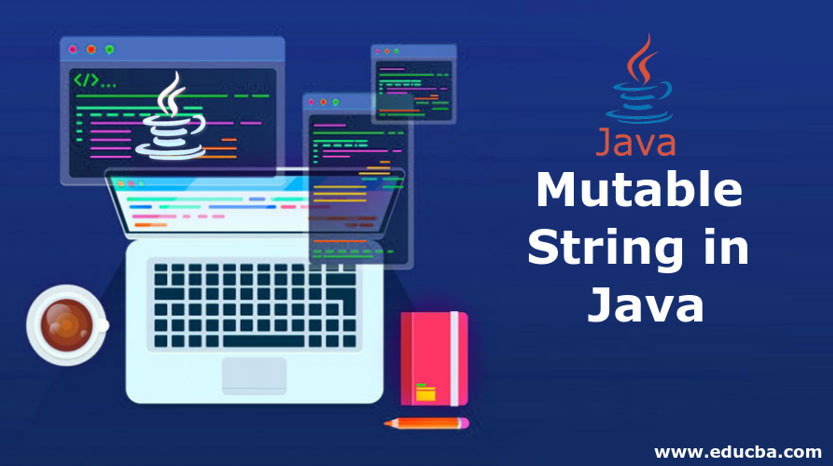What Is Unalterable Strings and How It Functions
In the realm of programming, comprehending the concept of immutable strings is vital for producing robust and safe applications. Immutable strings refer to strings that can not be changed after they are produced, ensuring information integrity and predictability within the code. This basic principle plays an important duty in numerous programs languages and uses an one-of-a-kind strategy to dealing with information. By checking out the ins and outs of exactly how immutable strings operate, one can discover a globe of advantages and possibilities that can raise the quality and performance of software application development.
The Fundamentals of Unalterable Strings
Immutable strings, as a basic idea in programming, are personality sequences that can not be transformed when they are developed. This means that as soon as a string is appointed a worth, that worth can not be changed. In languages like Python and Java, strings are unalterable objects, causing various effects in regards to memory administration and information honesty.
One of the key benefits of unalterable strings is that they offer a sense of safety in data adjustment. Since the content of an immutable string can not be modified, it guarantees that the original data continues to be undamaged, lowering the danger of unintentional modifications during program implementation (Why are strings immutable in Java?). This property also streamlines debugging processes, as programmers can rely on that when a string is specified, its worth will not be unintentionally modified
Furthermore, immutable strings help with effective memory usage. When a new string is developed based on an existing one, as opposed to changing the initial string, the brand-new worth is stored individually. This approach boosts efficiency by decreasing memory fragmentation and streamlining memory allowance procedures. On the whole, recognizing the fundamentals of immutable strings is essential for mastering programming concepts and optimizing code performance.
Benefits of Immutable Strings
Building upon the security and effectiveness benefits of immutable strings, their advantages reach improving code reliability and simplifying concurrent programs jobs. By being immutable, strings can not be customized after production, which gets rid of the risk of unintentional adjustments in the information they store. This fundamental immutability guarantees that when a string is produced, its worth continues to be consistent throughout the program's execution, decreasing the possibilities of bugs triggered by unforeseen alterations.
Additionally, immutable strings add to code integrity by making it much easier to reason regarding the state of a program. Considering that strings can not be transformed, designers can trust that a string will constantly hold the very same value, streamlining debugging and maintenance efforts. This predictability causes more stable and reliable codebases.

Implementation in Shows Languages
Within various shows languages, the incorporation of unalterable strings is a basic element that influences exactly how information is handled and adjusted within code frameworks. The implementation of immutable strings differs across various shows languages, with each language supplying its own systems to sustain this principle.

In contrast, languages like C and C++ do not have integrated support for immutable strings. Developers in these languages have to manually carry out immutability by implementing guidelines within their code to avoid direct modifications to string things.
Finest Practices for Collaborating With Immutable Strings
When dealing with immutable strings in programming languages like Java and Python, adhering to ideal techniques guarantees efficient and safe data adjustment. Among the essential finest practices is to use StringBuilder or StringBuffer rather than directly adjusting strings, particularly when managing extensive concatenation operations. These courses provide mutable choices for string control, assisting to stay clear of unnecessary memory allowances and enhancing performance.
One more finest technique is to use string interpolation or format functions supplied by the language instead of hands-on concatenation. This not just improves readability however additionally help in preventing typical mistakes such as unintended string adjustments. Furthermore, when dealing with sensitive data such as passwords or API keys, it is critical to stay clear of keeping them as ordinary message in immutable strings. Using safe and secure storage systems like char arrays or specialized libraries for dealing with sensitive info assists mitigate safety risks associated with immutable strings.
Real-world Applications and Examples
Exploring practical implementations of unalterable strings in different markets exposes their significant influence on data honesty and system integrity. In the medical care sector, immutable strings play a critical role in making certain the security and discretion of patient information. By avoiding unauthorized alterations to delicate info such as clinical records and prescriptions, immutable strings assist preserve conformity with stringent privacy regulations like HIPAA.
Economic organizations also take advantage of the unalterable nature of strings to enhance the safety of customer data and purchase documents. Immutable strings assist prevent fraudulence and unauthorized changes to monetary details, providing a robust protection against cyber threats and making sure the depend on and self-confidence of customers.

Conclusion
Finally, unalterable strings are taken care of and unchangeable sequences of personalities that supply benefits such as string safety and boosted efficiency in shows. They are carried out in different shows languages to make certain information integrity and protection. Finest methods for functioning with immutable strings include avoiding straight alterations and using approaches that return brand-new string items. Real-world applications of unalterable strings include data security, caching, and string manipulation jobs.
Unalterable strings refer to strings that can not be changed after they are developed, making sure data integrity and predictability within the code. When a brand-new string is created based on an existing one, instead than modifying Get More Information the initial string, the brand-new value is stored individually.In languages like Java and Python, strings are unalterable by default, meaning that when a string object is developed, its value can not be altered - Why are strings immutable in Java?. Finest practices for functioning with immutable strings include staying clear of direct modifications and making use of techniques that return brand-new string objects. Real-world applications of unalterable strings include information security, caching, and string manipulation tasks